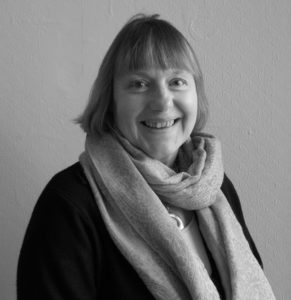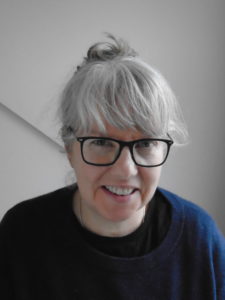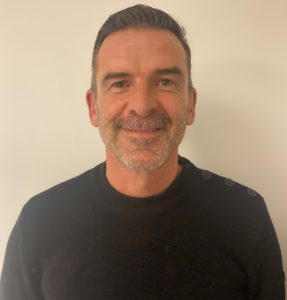Director
Dr. Eva Coleman

I am a UKCP registered, psychoanalytic psychotherapist, with forty years of experience in the field. I worked in private practice, as well as a medium secure hospital, providing consultation and therapy for those with severe personality and mental health difficulties.
I set up and directed a counselling service for women in Brighton and Hove ( Threshold Women’s Counselling). More recently, I set up Brighton Therapy Centre, and was Clinical Director there for seven years.
I have been a member of an advanced, in-service practitioner training group for over twenty years . I have taught aspects of counselling and therapy and supervised those in practice. I have been a consultant and advisor to a number of local and national organisations.
I am not currently offering ongoing therapy , but I do offer consultations.
In addition to all of this, I am also a Trustee at ONCA, a Brighton based Arts Charity, that bridges social and environmental justice issues with creativity.











 I am a trauma informed qualified psychotherapeutic counsellor I believe therapy is about creating a safe and supportive space for exploring life transitions and challenges. The relationship with clients I aim for is based on collaboration and trust, which is an important vehicle for repair, grieving, learning and experimenting with what is new and possible.
I am a trauma informed qualified psychotherapeutic counsellor I believe therapy is about creating a safe and supportive space for exploring life transitions and challenges. The relationship with clients I aim for is based on collaboration and trust, which is an important vehicle for repair, grieving, learning and experimenting with what is new and possible.



 I’m a qualified, BACP registered, integrative counsellor where my core theory is person centred. I work holistically by blending different theory approaches according to what you need.
I’m a qualified, BACP registered, integrative counsellor where my core theory is person centred. I work holistically by blending different theory approaches according to what you need. 





 I am a Humanistic counsellor, with a post-graduate diploma from Brighton University, and am a member of the BACP (British Association for Counselling and Psychotherapy). I am a warm, compassionate person, and offer you a safe, down to earth, and non-judgemental space. Together, we can explore the meaning that you make of your lived experiences, going at a pace that feels right for you.
I am a Humanistic counsellor, with a post-graduate diploma from Brighton University, and am a member of the BACP (British Association for Counselling and Psychotherapy). I am a warm, compassionate person, and offer you a safe, down to earth, and non-judgemental space. Together, we can explore the meaning that you make of your lived experiences, going at a pace that feels right for you.


 I am a qualified TA (Transactional Analysis) counsellor and counsel adults around a wide range of issues. These include: anxiety, family & relationship issues, depression, low self-esteem and boarding school trauma. My role is to support you to find your own way through your difficulties while providing a safe, supportive and gently challenging relationship in which to find self-understanding, acceptance and change. Where I feel it will be helpful, I share models, images and theory.
I am a qualified TA (Transactional Analysis) counsellor and counsel adults around a wide range of issues. These include: anxiety, family & relationship issues, depression, low self-esteem and boarding school trauma. My role is to support you to find your own way through your difficulties while providing a safe, supportive and gently challenging relationship in which to find self-understanding, acceptance and change. Where I feel it will be helpful, I share models, images and theory. Hello, I’m Ellie. I’m a trainee Integrative counsellor, specialising in Person-Centred therapy, CBT and Gestalt therapy, and am a student member of the British Association of Counsellors and Psychotherapists. I’ve previously worked as a trainee counsellor with the NHS, and have also worked in the corporate sector for 7 years. My background in this work has given me an appreciation and understanding for those struggling to navigate difficult work environments.
Hello, I’m Ellie. I’m a trainee Integrative counsellor, specialising in Person-Centred therapy, CBT and Gestalt therapy, and am a student member of the British Association of Counsellors and Psychotherapists. I’ve previously worked as a trainee counsellor with the NHS, and have also worked in the corporate sector for 7 years. My background in this work has given me an appreciation and understanding for those struggling to navigate difficult work environments. I am a UKCP registered trainee psychotherapist. Having completed an Intensive Certificate in Counselling and Psychotherapy, I am continuing my training at Regent’s University, London.
I am a UKCP registered trainee psychotherapist. Having completed an Intensive Certificate in Counselling and Psychotherapy, I am continuing my training at Regent’s University, London. Hi, I’m Amy. I’m training in humanistic counselling and psychotherapy. I work with the belief that the relationship we create together may allow you to harness your own potential to find a way forward. Though there are aspects of our lives that we cannot change, we have a choice about how we manage the challenges we meet. Together we can explore your ways of relating to yourself, others and the world and how these may have been shaped by your past experiences and current circumstances. We can examine what still serves you and what may not, to move towards a way of being that is aligned with your values.
Hi, I’m Amy. I’m training in humanistic counselling and psychotherapy. I work with the belief that the relationship we create together may allow you to harness your own potential to find a way forward. Though there are aspects of our lives that we cannot change, we have a choice about how we manage the challenges we meet. Together we can explore your ways of relating to yourself, others and the world and how these may have been shaped by your past experiences and current circumstances. We can examine what still serves you and what may not, to move towards a way of being that is aligned with your values.

